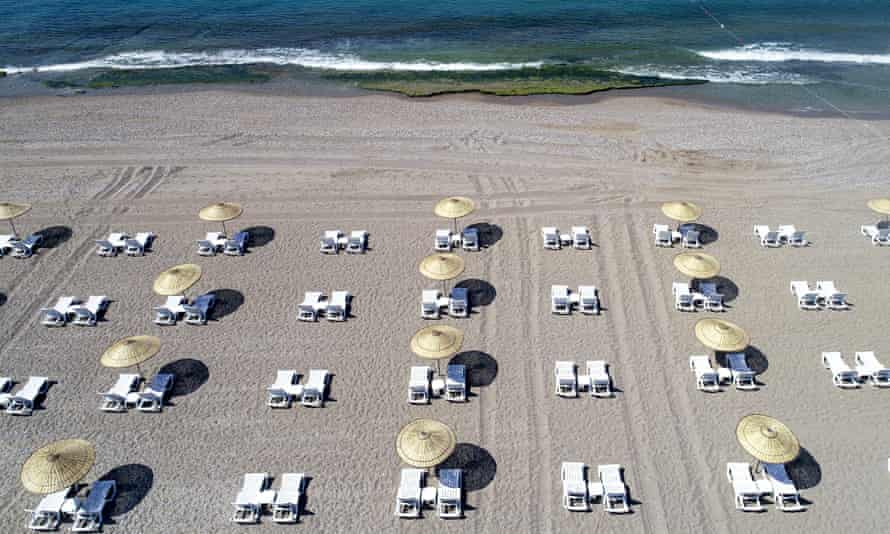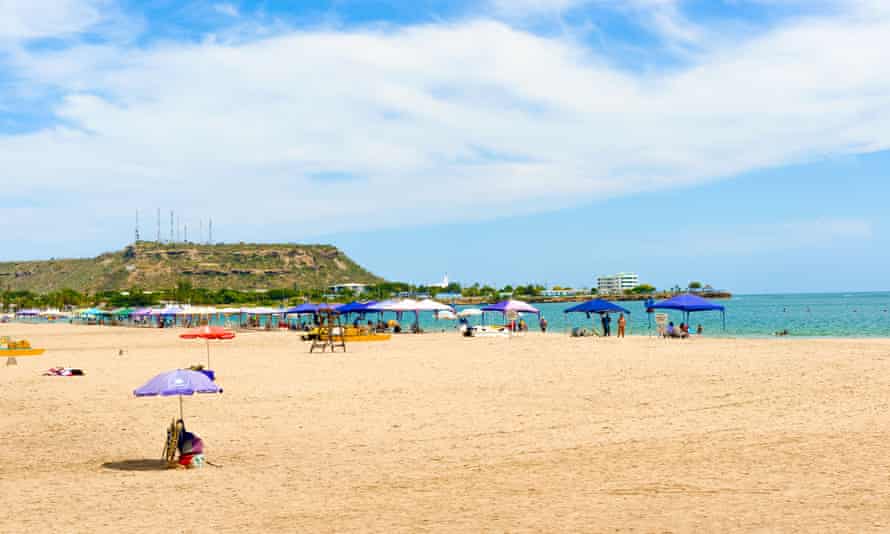Turkey, Ecuador and South Africa will be among hardest hit as pandemic-related losses reach $2.4tn, says UN report

The cost to the global economy of the tourism freeze caused by Covid-19 could reach $4tn (£2.9tn) by the end of this year, a UN body has said, with the varying pace of vaccine rollouts expected to cost developing nations and tourist centres particularly dear.
Nations including Turkey and Ecuador will be among the hardest hit by the severe disruption to international tourism, with holiday favourites such as Spain, Greece and Portugal also badly affected. Pandemic-related losses have reached up to $2.4tn this year, according to a report by the United Nations Conference on Trade and Development (Unctad). The potential lost tourism-related income in 2021 is equivalent to the effect of switching off 85% of the UK economy, while projected losses over 2020 and 2021 could equate to removing Germany from the global economy for two years.
Unctad said developing countries were likely to suffer the most this year, with heavily tourism-reliant countries such as Spain, Greece and Portugalbenefiting from a swift vaccine rollout in stronger economies.
Countries that lean on the tourism sector for economic output but that are susceptible to problems such as a slow vaccine rollout could see their economies shrinking by nearly a tenth, the report found.
Variance in vaccine rollout is behind a significant difference in how Unctad thinks countries around the world could be affected.
The report’s worst-case prediction is based on tourist numbers mimicking 2020, when they were down 74% compared with 2019, a reduction equivalent to 1bn passenger arrivals and worse than Unctad had expected.
Its best-case scenario for 2021 assumes that countries with low vaccination rates will experience no improvement, but that those with high rates of vaccination see a much smaller reduction of 37% compared with a normal year.
Turkey will be worst hit under either scenario, according to Unctad, with its economy contracting by 7.8% in the best-case scenario and 9.1% in the worst case. The report points out that tourism makes up about 5% of the country’s economic output and that the number of tourists who went there last year slumped by 69%.
Ecuador’s GDP is projected to fall by 9% in the worst-case scenario and 7.5% at best, while South Africa is slated to be third-worst hit, taking a hit of between 6.9% and 8.1%. European holiday favourites such as Spain, Portugal and Greece could face GDP declines of 7%, 8% and 8% respectively.
In Unctad’s worst-case scenario, Ireland is projected to take the fourth-largest hit, while the UK is eighth, despite the rapid deployment of vaccines there.
But the UK would perform much better than the rest of the world under the more optimistic projections, due to the high proportion of the population that have received both doses of a vaccine.
Zurab Pololikashvili, secretary general of the UN’s World Tourism Organisation, said: “Tourism is a lifeline for millions, and advancing vaccination to protect communities and support tourism’s safe restart is critical to the recovery of jobs and generation of much needed resources, especially in developing countries, many of which are highly dependent on international tourism.”

On a regional basis, Central America is projected to suffer the most, with GDP potentially falling by as much as 11.9%, followed by east Africa on 9.3% and south-east Asia with an 8.4% drop.
Unctad’s assessment is based on the direct impact of lost income to tourist spots such as hotels and restaurants, as well as the knock-on effect sweeping through sectors that supply tourism, such as food, beverages, retail, communications and transport.
“The world needs a global vaccination effort that will protect workers, mitigate adverse social effects and make strategic decisions regarding tourism, taking potential structural changes into account,” said Unctad’s acting secretary general, Isabelle Durant.
